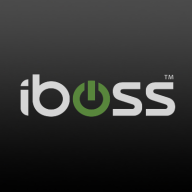


Fortinet FortiGate and Cisco Secure Access are major players in the cybersecurity market. Fortinet FortiGate stands out for affordability and strong customer support, while Cisco Secure Access is preferred for its advanced features, despite a higher cost.
Features: Fortinet FortiGate features an integrated security fabric, strong firewall capabilities, and advanced threat protection. Cisco Secure Access offers advanced analytics, comprehensive identity management, and seamless integration with Cisco’s product suite.
Room for Improvement: Fortinet FortiGate could enhance its feature set to match the complex needs of large enterprises. Additionally, it would benefit from more sophisticated analytics capabilities. Cisco Secure Access could improve by simplifying deployment processes and reducing costs. It might also enhance user-friendliness for novices in the field.
Ease of Deployment and Customer Service: Fortinet FortiGate is praised for straightforward deployments and readily accessible customer support, making it ideal for businesses needing quick setups. Cisco Secure Access offers extensive support services beneficial for complex enterprise networks, although its deployment is more complex.
Pricing and ROI: Fortinet FortiGate is noted for cost-effective pricing and promising ROI, appealing to small and medium-sized enterprises. Cisco Secure Access, while having a higher upfront cost, provides substantial ROI for larger networks thanks to its extensive features. Fortinet offers a cost-effective entry with reliable features, whereas Cisco provides comprehensive security solutions justifying its premium pricing.



| Company Size | Count |
|---|---|
| Small Business | 6 |
| Midsize Enterprise | 6 |
| Large Enterprise | 5 |
| Company Size | Count |
|---|---|
| Small Business | 6 |
| Large Enterprise | 7 |
| Company Size | Count |
|---|---|
| Small Business | 350 |
| Midsize Enterprise | 130 |
| Large Enterprise | 187 |
Iboss offers a comprehensive cloud-based security platform valued for its scalability and autonomous features, ensuring robust security with easy deployment and management capabilities.
Renowned for its robust security architecture, Iboss integrates seamlessly within diverse networks, delivering efficient granular filtering and advanced content categorization. Its single pane of glass console provides ease of management, allowing rapid scalability suitable for rapidly deploying environments. Operates in BYOD setups due to inline filtering without device installation. Integration with cloud-based applications enhances user control, and features like SASE, SSL inspection, and ChatGPT risk protection stand as highlights. Despite its strengths, users have pointed out areas for enhancement like direct navigation in reports, SSL decryption, and better cloud integration while having room to improve data loss prevention.
What are the most important features of Iboss?The usage of Iboss spans educational institutions, specifically K-12, to enforce internet policies, protect data, and support remote work environments. It provides web filtering and security frameworks to ensure safe browsing. Its platform-as-a-service model offers flexibility for both cloud-based and on-premises requirements, integrating seamlessly to deliver enhanced security features suitable for various deployment needs including zero trust, CASB, and network security for work-from-home setups.
Cisco Secure Access is a comprehensive Security Service Edge (SSE) solution (a key component of a SASE solution) that addresses the complexities of securing a hybrid enterprise. Cloud-delivered and grounded in zero trust, it delivers a unique blend of user simplicity and IT efficiency for frictionless, secure access to all applications—SaaS (with gen AI), private apps, and the internet—regardless of user location or device. Secure Access protects users, data, and devices against relentless, sophisticated, and constantly evolving threats including AI-driven attacks and identity breaches.
Provides all core SSE components (ZTNA, SWG, CASB, and FWaaS) plus extended capabilities.
Includes VPN-as-a-Service (VPNaaS), data loss prevention (DLP), AI Assistant, visibility/control/guardrails for generative AI use, digital experience monitoring (DEM), reserved IP, remote browser isolation (RBI), DNS-layer security, flexible security enforcement (in cloud or on-premises), policy verification, and more.
Protects users as they seamlessly access resources and apps with no extra steps needed, regardless of protocol, port, or level of customization
Simplifies IT operations through a single client, single dashboard, single license, and unified policies.
Lowers risk with least privilege, granular controls backed with unmatched threat intelligence of Cisco Talos.
Eases interoperability with other products from Cisco and third-party vendors with common administrative controls, data structures, and policy management.
Robust integrations
Integrates with Cisco Identity Intelligence to protect against the startling increase in identity-based attacks.
Integrates with many SAML Identity Providers (IDPs) such as AD, Azure AD, Okta, Ping, etc.
Integrates with Cisco offerings including SD-WAN, Splunk, XDR, Thousand Eyes, third party technologies such as Menlo RBI, Chrome Enterprise Browser, and AppOmni for SSPM.
Fortinet FortiGate excels in providing integrated VPN, firewalling, and Unified Threat Management (UTM) with centralized management and high availability. It supports remote access and comprehensive threat protection, making it a preferred choice for securing networks.
Fortinet FortiGate offers a robust security platform with features such as strong intrusion prevention, application control, and web filtering. Its integration with Active Directory and SD-WAN functionality provides scalable solutions for large networks. Users appreciate its ease of use through centralized management interfaces, ensuring robust security with flexible configurations. However, FortiGate could enhance its graphical interface and technical support responsiveness, address firmware bugs and costly licensing, improve logging, integrate better with third-party tools, and strengthen scalability and memory for log storage. Complexity in configuration and the need for intuitive features are noted challenges, and there's a demand for advanced security, zero-trust capabilities, and AI integration.
What are the key features of Fortinet FortiGate?Fortinet FortiGate is widely implemented across industries like education, finance, and government. Companies use it for firewall protection, VPN, and SD-WAN capabilities, ensuring secure perimeter and data center security. It facilitates remote access management and traffic routing optimization, offering reliable security and connectivity solutions.
We monitor all Firewalls reviews to prevent fraudulent reviews and keep review quality high. We do not post reviews by company employees or direct competitors. We validate each review for authenticity via cross-reference with LinkedIn, and personal follow-up with the reviewer when necessary.